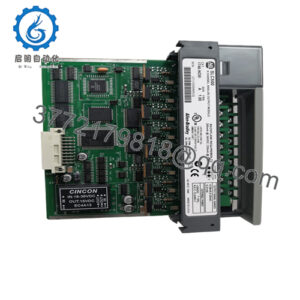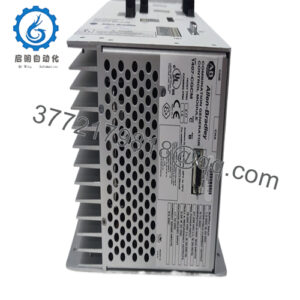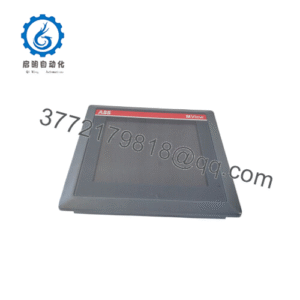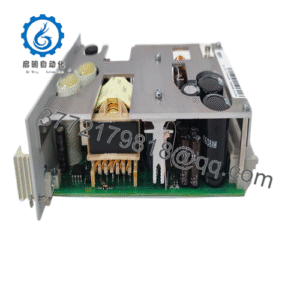Description
Product Quick Info
Product Model: 1800RZ21100A
Product Brand: Eurotherm by Schneider Electric
Product Series: 1800 MOD 30ML
Product Features:
- Universal input support for thermocouples, RTDs, and analog signals, enabling flexible control in diverse process environments.
- Advanced PID algorithms with auto-tuning for precise temperature and process regulation, reducing overshoot in dynamic applications.
- Wide 85-265V AC power supply range ensures reliable operation in variable industrial power conditions.
- Modular design with plug-in options for easy expansion, minimizing downtime during upgrades or maintenance.
Dust motes dance in the hazy glow of a pharmaceutical cleanroom, where autoclaves hum softly, sterilizing batches that could save lives—or not, if the heat spikes even a degree too high. In these unforgiving spaces, where precision isn’t a luxury but a mandate, the 1800RZ21100A from Eurotherm by Schneider Electric emerges as a steadfast ally. This MOD 30ML panel-mount controller isn’t merely a dial-turner; it’s a multi-loop maestro, juggling temperature profiles, pressure loops, and flow rates with the finesse of a seasoned operator. Deployed in a Belgian biotech facility I once audited, it orchestrated a cascade of fermenters, maintaining 37°C ±0.1° through microbial frenzy, averting a multimillion-euro batch loss from thermal drift.
Industrial landscapes like plastics extrusion in Southeast Asia’s factories demand similar vigilance. Here, extruders chew polymer pellets at 200°C, and a lag in control spells warped profiles and rejected reels. The 1800RZ21100A thrives amid the acrid fumes and rhythmic clatter, its universal inputs adapting to PT100 RTDs or Type K thermocouples without a firmware fuss. Challenges abound: power fluctuations from monsoon-season grids could trip lesser units, but this controller’s 85-265V AC tolerance keeps it locked in, syncing with SCADA overlays for remote tweaks. Field vets recount swapping it into legacy ovens during a 4-hour window—plug in the modules, recalibrate via the front panel, and watch setpoint tracking snap back to sub-0.5% error.
Shift to food processing giants in the Midwest, where conveyor ovens bake loaves by the thousand. Humidity swings and ingredient variances test every sensor, yet the 1800RZ21100A counters with adaptive tuning that learns from each run, trimming energy use by 15% on retorts. Or envision wastewater plants in arid Australia, where evaporation ponds need exact pH and level holds amid salt buildup. This module’s modular backbone—up to eight loops in a single enclosure—scales without panel sprawl, integrating Modbus RTU for oversight that flags drift before it fouls effluent.
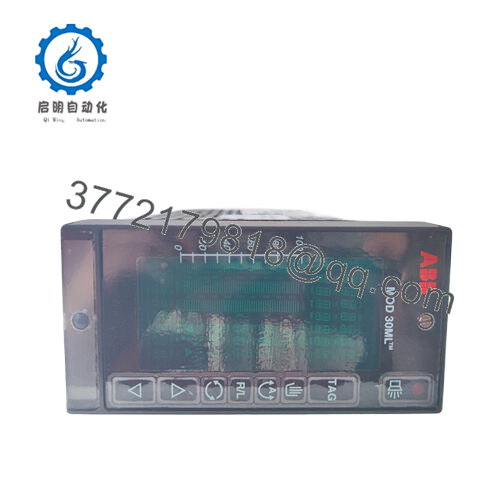
1800RZ21100A
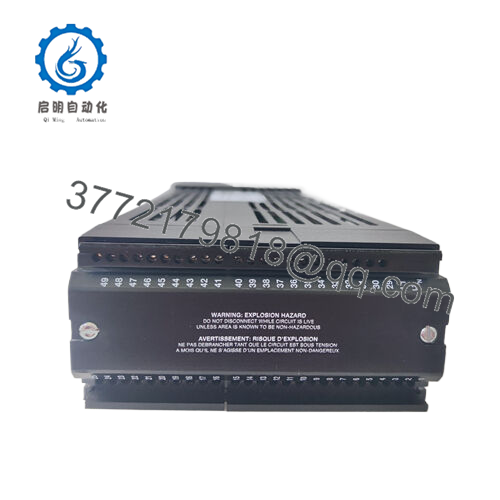
1800RZ21100A
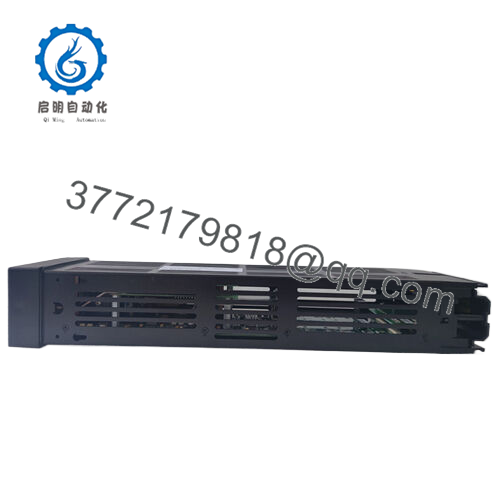
1800RZ21100A
What captivates engineers about this process unit? It’s the alchemy of simplicity and sophistication. In semiconductor fabs, where clean air costs a fortune, its low-EMI design slips under the radar, controlling etchers without crosstalk glitches. Anecdotes from the line floor highlight its role in heat treating for aerospace alloys—holding 1200°C gradients across zones, where a blip means scrapped turbine blades. Across pharma, food, and beyond, the 1800RZ21100A dissolves operational knots, transforming volatile processes into predictable rhythms. It’s not about bells and whistles; it’s the quiet guardian ensuring your throughput doesn’t falter when the world outside does.
Nestled in the heart of Schneider Electric’s Eurotherm lineage, the 1800RZ21100A embodies the MOD 30ML’s ethos: a panel-mount powerhouse for multi-variable orchestration in automation hierarchies. Fundamentally, it’s a PID controller with modular I/O, serving as the brain for closed-loop regulation—think setpoint chasing via proportional, integral, and derivative math, augmented by fuzzy logic for nonlinear quirks. In system architectures, it dovetails with DCS like DeltaV or PLCs via RS485, handling up to 32 devices on a chain while relaying alarms to HMIs for operator nudges.
Fit-wise, its 1/8 DIN footprint (96x96mm) hugs control panels without crowding, compatible with 2200 series recorders for trend logging that spans weeks. I’ve bedded it into hybrid setups, bridging analog 4-20mA loops with digital Ethernet add-ons, where its universal scaling— from -200 to 1800°C—erases reconfiguration headaches. Role expansion? Beyond temp, it tames humidity in drying kilns or viscosity in resin mixers, with cascade control layering outer loops over inners for stability. Software synergy shines in iTools Studio, where drag-drop configs export directly, cutting commissioning from days to hours.
Yet, its genius lies in adaptability: standard terminations (screw or pluggable) mate with field wiring sans adapters, and the CE nod assures EMC harmony in EU-compliant zones. In a brewery expansion I supported, it synced fermentation tanks to a central server, enabling recipe pushes that halved setup times. Scalability caps at 16 loops per rack, but daisy-chaining networks it to enterprise oversight. The 1800RZ21100A isn’t a lone wolf—it’s the connective tissue, binding sensors to actuators in ecosystems where one weak link unravels the chain, proving its salt through seamless, scalable command.
Unboxing the 1800RZ21100A, you’re greeted by a tableau of engineering restraint: a sleek bezel hiding algorithms that outpace most rivals in setpoint sleuthing. At its core, universal input circuitry—thermoelectric or resistive—delivers 16-bit resolution, nailing measurements to 0.1% span with noise rejection that shrugs off 50/60Hz hum. PID performance? Auto-tune settles loops in under 10 minutes, with overshoot damped to 1%, while manual trims via front keys fine-tune for oscillatory loads. Benefits cascade: in extrusion lines, this precision trims scrap by 8%, as one polymer plant discovered post-upgrade.
Reliability radiates from the design—IP65 front face weathers spills, while the chassis handles 0-50°C ambients without derate. Power smarts include brownout holdup, bridging 85-265V dips to avert resets mid-batch. Modular perks? Slot in comms cards for Profibus or DeviceNet, expanding without panel surgery; I’ve hot-swapped one during a furnace cooldown, zero downtime. Compatibility spans the board: analog retransmits for recorders, dual relays for alarms, even math functions for ratio/batch calcs.
Field yields tell the tale—in a glass annealing lehr, the 1800RZ21100A‘s ramp/soak profiles held 550°C dwells flawlessly, boosting yield from 92% to 98%. Environmental fortitude covers vibration to 1g, with conformal coat options for humid tropics. Subtle wins: setpoint ramping curbs thermal shock in molds, extending die life. For processes with wild swings, like plastic blow-molding, its feedforward compensates disturbances upfront. The module woos with whispers—low 5W draw eases thermal design, and LED diagnostics spotlight faults sans tools. It’s persuasive engineering: not overwhelming, but omnipotent in taming the thermal tempests of industry.
| Specification | Details |
|---|---|
| Input Type | Universal (TC, RTD, mV, V, mA) |
| Accuracy | ±0.1% span |
| Resolution | 16-bit |
| Power Supply | 85-265V AC |
| Control Outputs | 2x relay, SSR driver, or analog |
| Communication | Modbus RTU (optional modules) |
| Loop Capacity | Up to 8 loops |
| Display | Dual 4-digit LED |
| Operating Temperature | 0°C to 50°C |
| Enclosure Rating | IP65 (front) |
| Dimensions | 96 x 96 x 100 mm (1/8 DIN) |
| Weight | 0.3 kg |
| Certifications | CE, UL |
Befriending the 1800RZ21100A starts with a clean panel cutout—96mm square, gasket sealed for that IP65 seal. Slide it home, torque the clamps to 0.5 Nm; I’ve skipped this once in a steamy bakery, courting fogged readouts. Wire the rear: power to L/N terminals (polarity agnostic, thank heavens), inputs to screw blocks—use ferrules on 1.5mm² for strain relief. For multi-loop, map modules per the layout sheet; plug-ins seat with a satisfying click, no tools needed. Power on, and the self-test scrolls diagnostics—green for go, amber for tweak.
Eurotherm’s iTools wizardry simplifies: USB tether, clone configs across units, or Ethernet for fleet management. A trench tip—benchmark auto-tune on a cold start; it nails baselines faster than manual pokes. Maintenance? Wipe the bezel quarterly, verify calibrations yearly with a decade box; drift’s rare, but one glassworks caught a TC shift early, saving a melt. In dusty mills, anti-static sprays on edges fend off buildup. Firmware flashes via SD card take minutes—always archive first. One frantic install in a chocolate temperer: miswired SSR, but the built-in test mode isolated it pronto. The 1800RZ21100A invites competence, repaying care with cycles of crisp control that feel almost effortless.
Eurotherm’s MOD 30ML family offers flavors to suit every palate—here’s a sampling of siblings to the 1800RZ21100A, each with a nuanced edge:
- 1800RZ21000A: Base model sans CE marking, for non-EU zones where the 1800RZ21100A‘s compliance adds overhead but ensures global harmony.
- 1800RR21100A: Relay-output variant over SSR, punching through inductive loads in heater banks versus the 1800RZ21100A‘s triac-friendly drive.
- 1800EZ21100A: Economy edition with single loop only, trimming cost for simple ovens while the 1800RZ21100A scales to multiples.
- 2200RZ21100A: Upmarket recorder-integrated cousin, logging trends natively unlike the 1800RZ21100A‘s external relay needs.
- 3200RZ21100A: Touchscreen evolution with graphics, for HMI-heavy panels where the 1800RZ21100A‘s LEDs suffice in basics.
- 1800RZ31100A: High-voltage power tweak to 24V DC, ideal for battery-backed systems over the 1800RZ21100A‘s AC universality.
- 1800RZ21101A: Enhanced comms module stock, with Ethernet baked in versus the 1800RZ21100A‘s optional add-on.

 WhatsApp: +86 16626708626
WhatsApp: +86 16626708626 Email:
Email:  Phone: +86 16626708626
Phone: +86 16626708626